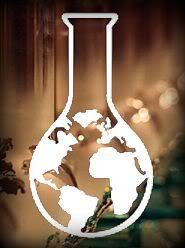More and more, I'm finding cool research as it relates to reducing and reusing - or even reimagining - waste products. As the Green Chemistry Network's December newsletter points out, we should view waste as a resource rather than as a problem. This focus immediately can split into two categories: reducing and reusing, and the chemistry behind both. It's nice that GCN has a whole newsletter about these ideas, and I've also been finding pretty ample resources everywhere I've looked (check out my new links!) Previously I'd considered all the information to be disparate, as each article focused on different green products and processes. With these two overarching goals, I'm finding plentiful connections!
In terms of reusing wastes, researchers seem to be really creative. From using food waste as a preservative to making black paint from metal sludge, the ideas span lots of interesting examples. I could consider refining my topic just to this category, and focusing on a few of these examples if I find that I'm too spread out.
Reducing waste seems be more technical and specific, focusing on things like changing the process of tanning leather and using water as a solvent rather than synthetics. If anything, this is a slight bit harder to research, as it's a bit more subtle as an idea, and it's usually intertwined with reusing. Still, I'm generally finding good information here, as well.
Subscribe to:
Post Comments (Atom)

2 comments:
This is really cool stuff. So in terms of reduce, reuse, and recycle... which is the most practical? How is there chemistry behind reducing? I feel that it would be more about consumerism... but i have no clue. But i guess that whole "let's use less water by using something else" idea could use chemistry... hmm. Very interesting.
I like your topic. i think that you should focus on your first idea of taking specific examples of waste products and how to convert them into usable, valuble things in our society. The more bizzare the better!! I know that I'd like to know more of these examples and the chemistry behind these things so do ya thing and inform us.
(chicka chicka yea)
Post a Comment